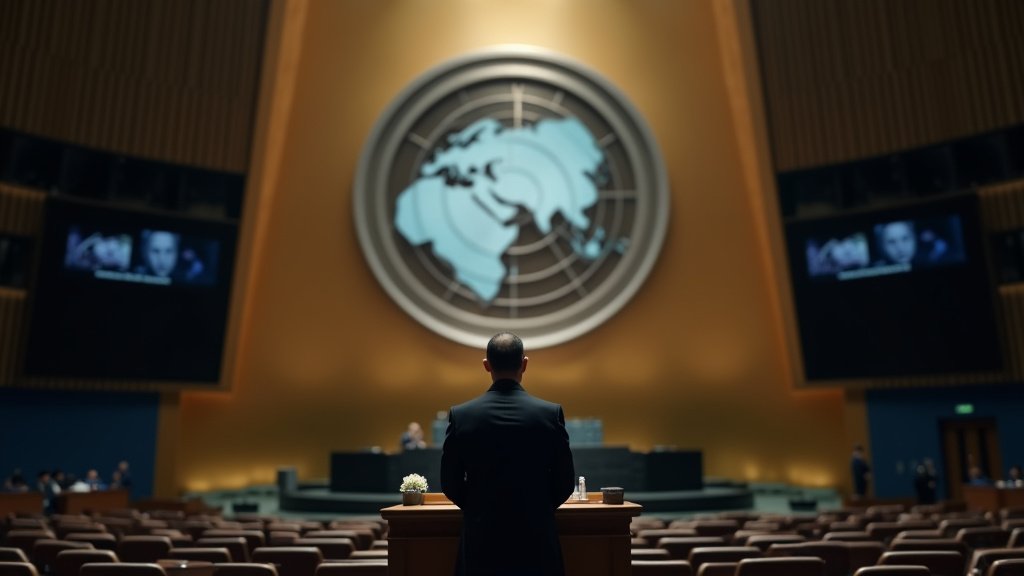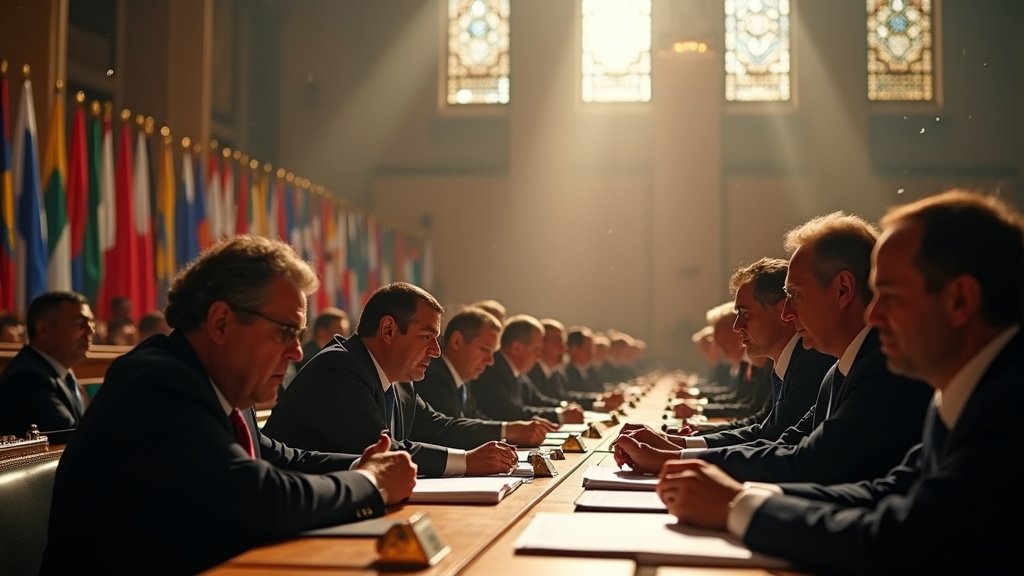New York – October 18, 2025 – In a significant statement delivered at the United Nations General Assembly, Qatar has strongly reiterated the pressing and growing urgency of establishing a Middle East Nuclear-Free Zone. The call comes amid heightened regional and global security challenges, underscoring a consistent diplomatic push by Doha to denuclearize a volatile region and dismantle weapons of mass destruction.
Khalid Ibrahim Al Mansouri, a member of Qatar’s delegation to the UN General Assembly’s 80th Session, articulated the nation’s firm position during discussions at UN Headquarters. He stressed that the proliferation of nuclear weapons remains a deeply troubling concern for the international community, significantly increasing the risk of catastrophic accidents and attacks. Al Mansouri warned that the ongoing development and modernization of nuclear arsenals, coupled with threats of their use, further exacerbate global tensions and undermine both regional and international peace and security. This Qatar UN statement aligns with Qatar’s long-standing advocacy for global disarmament and non-proliferation efforts as foundational to creating safe and peaceful societies.
The Deepening Imperative for a Middle East Nuclear-Free Zone
Qatar’s renewed emphasis highlights a growing international awareness of the dangers posed by nuclear weapons, a sentiment reflected in the adoption of the Treaty on the Prohibition of Nuclear Weapons by the UN General Assembly. Al Mansouri pointed out that the possession of nuclear weapons inherently complicates existing armed conflicts, worsens regional crises, and contributes to a heightened state of global insecurity. The current geopolitical landscape, marked by escalating tensions from regional and international conflicts, and the increasing integration of nuclear weapons into military doctrines, necessitates a strong push for regional and international consensus in the Middle East.
This news is trending as a crucial development in ongoing nuclear disarmament Middle East efforts. Qatar’s stance underscores the belief that robust global disarmament and non-proliferation initiatives are not merely aspirational but are fundamental prerequisites for the stability and security of all nations.
Historical Hurdles on the Path to a Middle East Nuclear-Free Zone
The aspiration for a Middle East free of nuclear weapons is not new, dating back decades to proposals made in the 1970s. Over the years, the United Nations has facilitated conferences and adopted resolutions aimed at achieving this goal, with the latest in a series of such meetings scheduled for November 2025. However, progress has been consistently challenged by complex regional dynamics, including deep-seated mistrust, competing security concerns, and the unresolved Israeli-Arab conflict. A significant impediment remains Israel’s undeclared nuclear weapons capability and its non-adherence to the Treaty on the Non-Proliferation of Nuclear Weapons (NPT). Other regional states, such as Iran, also present considerations within the broader nuclear discourse.
These obstacles highlight the intricate political and security landscape that must be navigated to create a Middle East Nuclear-Free Zone. The ongoing UN Conference on the Establishment of a Middle East Zone Free of Nuclear Weapons and Other Weapons of Mass Destruction serves as a critical forum for dialogue, though decisions often require consensus among participating states.
Qatar’s Role and Global Commitment to a Middle East Nuclear-Free Zone
Qatar has consistently affirmed its commitment to international disarmament mechanisms and has expressed its full support for the UN Conference on the Establishment of a Middle East Zone Free of Nuclear Weapons and Other Weapons of Mass Destruction. The nation has acceded to key treaties related to the elimination of weapons of mass destruction and fully implements its obligations under them. Qatar’s consistent voting record in favor of resolutions related to the Treaty on the Prohibition of Nuclear Weapons further solidifies its position.
The state of Qatar has also acknowledged the importance of the upcoming 2026 Review Conference of the Parties to the NPT, expressing support for its presidency and hoping for substantive outcomes. By advocating for the responsible development of peaceful nuclear energy while simultaneously pushing for disarmament, Qatar aims to balance national interests with global security imperatives.
Conclusion
As global security challenges trend upwards, Qatar’s robust call for a nuclear-weapons-free Middle East serves as a crucial reminder of the enduring challenges and the vital importance of achieving this objective. While historical obstacles persist, Qatar’s renewed emphasis at the UN, coupled with its active participation in international disarmament forums, underscores a commitment to fostering a region and a world free from the existential threat of nuclear weapons. The success of such an initiative hinges on sustained diplomatic engagement, building trust among regional actors, and securing the full cooperation of the international community to establish a true Middle East Nuclear-Free Zone.




